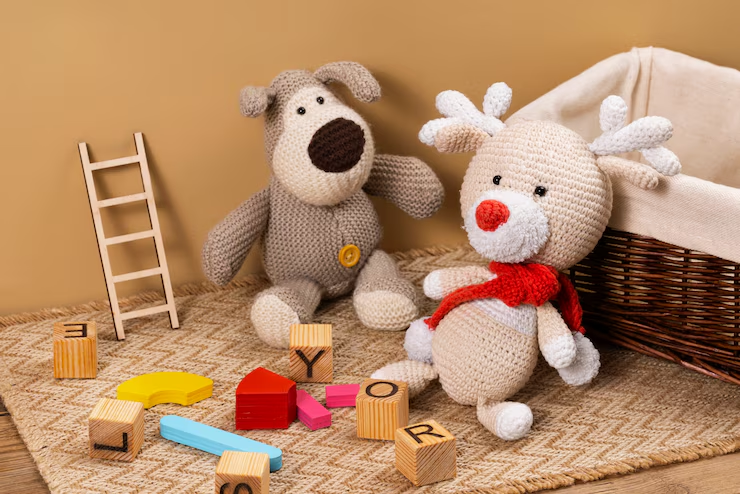Plush Toys Boost Emotional Intelligence

Emotional intelligence (EI) is a vital skill set that can significantly impact a child’s future success and well-being. Plush toys, often overlooked as mere playthings, can be powerful tools in nurturing EI in children through their natural play behaviors. In this blog, we delve into how plush toys can guide children in understanding and managing their emotions.
Building Empathy Through Nurturing Play
Children often engage in nurturing behaviors with their plush toys, such as feeding, bathing, or tucking them in at night. These actions mirror caregiving behaviors they observe in adults, allowing them to practice empathy. Through this nurturing play, they learn to recognize and respond to the needs of others, fostering emotional intelligence.
Using Plush Toys to Express Feelings
Plush toys can act as emotional proxies, making it easier for children to express and communicate their feelings. For instance, a child may “talk” to their toy about their day or share their concerns, which helps them process emotions. This safe outlet can significantly contribute to their emotional literacy.
Creating Safe Scenarios for Emotional Learning
By using plush toys to create and act out various social scenarios, children can explore different emotional responses and learn how to handle challenging situations. These role-playing activities can help them understand diverse perspectives and develop problem-solving skills within a secure and supportive environment.
Long-Term Benefits for Social Relationships
The emotional skills developed through interaction with plush toys—such as empathy, self-regulation, and social awareness—translate into more profound social connections and successful peer interactions as children grow older. These skills lay the foundation for forming healthy relationships and workplace dynamics in the future.